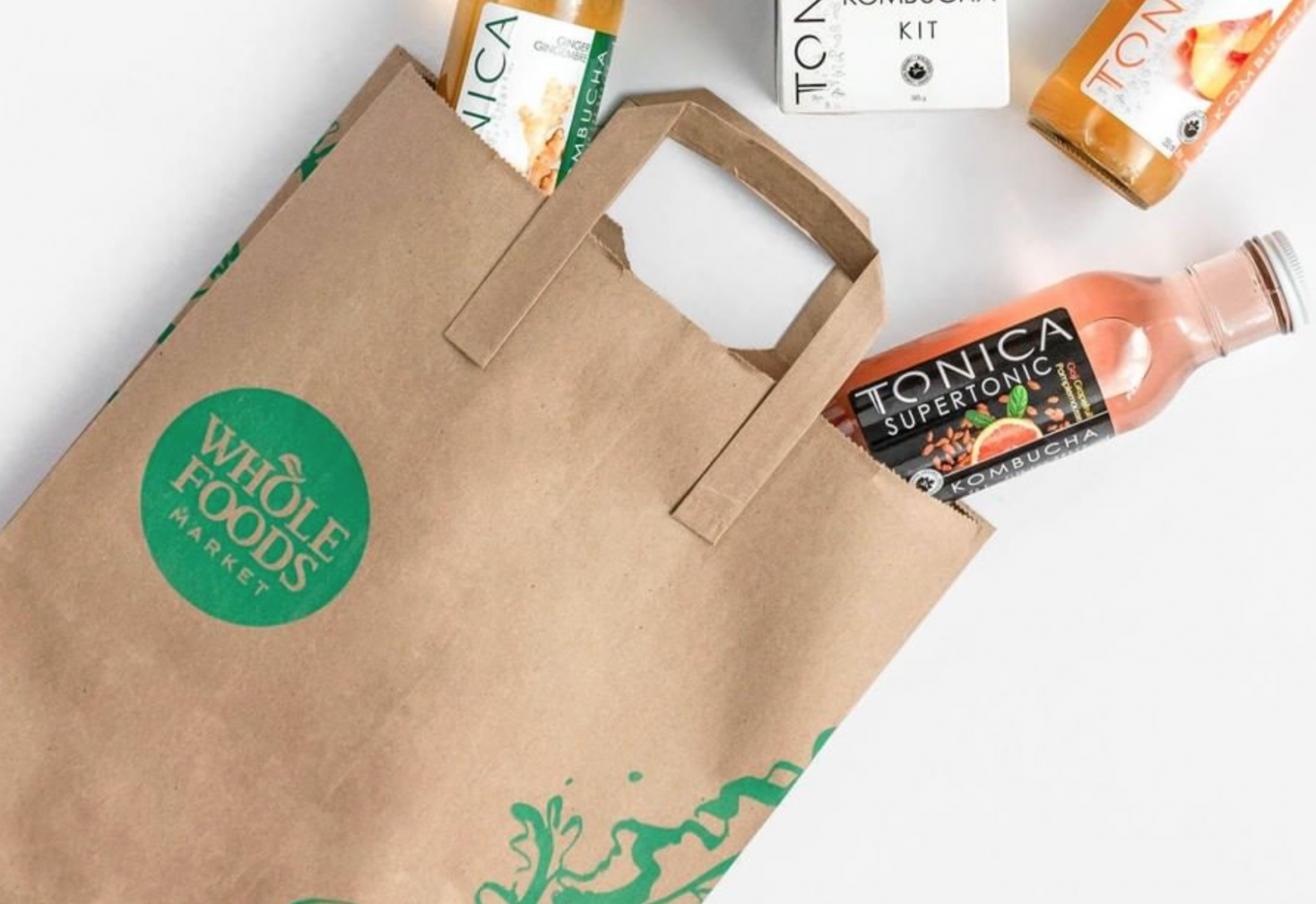
Whole Foods Market has been named in a proposed class action lawsuit, with a pool of employees accusing the supermarket chain of racial discrimination and retaliation. According to the complaint that fourteen Whole Foods employees (the “plaintiffs”) filed in a federal court in Massachusetts on Monday, while “Whole Foods and its parent company Amazon have professed to support the Black Lives Matter [‘BLM’] movement,” they are allegedly “disciplining employees” in stores across the U.S. “for wearing [BLM] masks” during their shifts.
The plaintiffs – who work at Whole Foods outposts in Massachusetts, New Hampshire, Washington, and California – assert in the newly-filed suit that as a result of the COVID-19 pandemic, they are required to wear masks to work. With that in mind, some “Whole Foods employees began wearing masks emblazoned with different images or slogans” without pushback from management.
At the Bedford, New Hampshire, Whole Foods store, for instance, the plaintiffs claim that “one employee was allowed to wear a SpongeBob mask without any repercussions. At the Seattle, Washington, location, another Whole Foods employee wore a mask with images and names of vegetables, without being disciplined, [and] at the Berkeley, California location, employees have been allowed to wear masks with prints.”
In the wake of the death of George Floyd and “demonstrations this spring around the country protesting police violence and other discrimination against Blacks,” an array of Whole Foods employees began wearing masks adorned with “BLM” messages to work, and have been met with pushback from management as a result of what they call “a corporate decision” by Whole Foods “not to allow employees to wear the [BLM] masks.”
The plaintiffs claim that Whole Foods has begun disciplining employees for wearing the masks by sending some employees “home without pay,” and “threaten[ing] employees with termination if they continue wearing the masks.” At “some” store locations, “employees have been given disciplinary ‘points’ when they are sent home for wearing [BLM] masks,” thereby putting them “at risk for termination.” Meanwhile, one of the plaintiffs, Savannah Kinzer, was allegedly “terminated on Saturday, July 18, 2020” in connection with her “involvement and leadership in organizing her co-workers to wear the masks and protesting Whole Foods’ discipline of employees for doing so.” (A representative for Whole Foods says that Kinzer was fired for being late to and/or missing shifts).
The problem, according to the plaintiffs, is that Whole Foods is not merely enforcing a neutral dress code requirement, it is targeting employees who are protesting “racism and police violence against Blacks and show[ing] support for Black employees.”
The complaint states that that while Whole Foods maintains a dress code policy that “nominally prohibits employees from wearing clothing with visible slogans, messages, logos, or advertising that are not company-related,” that policy “had not [been] previously strictly enforced, and [the company] had not disciplined employees for wearing other messages, including political messages.” For example, “Whole Foods employees have worn apparel bearing various logos, such as those of local sports teams,” and have “commonly worn Pride flags in support of their LGBTQ+ coworkers without being disciplined by Whole Foods.” In particular, the plaintiffs argue that “employees have not been sent home or received discipline for wearing Pride pins or apparel.”
With the foregoing in mind, the plaintiffs claim that Whole Foods is engaging in discrimination in violation of Title VII of the Civil Rights Act of 1964 “both against Black employees who are participating in and leading the employee protest, and against other employees who are associating with and advocating for Black Whole Foods employees and protesting racism and discrimination in the workplace, by wearing the masks and showing support for their Black co-workers.” As such, in addition to seeking certification of their putative class action (which would enable other similarly-situated plaintiffs to join the suit), they are seeking preliminary and permanent injunctive relief to bar Whole Foods from prohibiting employees from wearing BLM masks and “retaliating” against the ones who do.
Moreover, the plaintiffs assert that they are entitled to an unspecified sum of monetary damages.
The case raises some interesting issues as businesses reopen in light of the continued spread of COVID and as the country is in the midst of largescale calls to address sweeping racial injustice. Private (i.e., not government) employers “have the right to regulate what employees wear to work,” according to Fredrikson & Byron lawyers Teresa Thompson and Edgar Ocampo. However, they “must ensure that their workplace dress code and dress code policies are neutral, adopted for nondiscriminatory reasons and applied consistently to all employees.” Otherwise, they run the risk of violating state and federal laws that prohibit discrimination on the basis of race, as well as facing “hostile work environment allegations if an inconsistently enforced policy disadvantages people based on race or another protected class.”
Employers must ensure that they are not violating anti-discrimination protections “by prohibiting certain employees – and not others – for engaging in the same behavior.” Addressing the topic ahead of the filing of the Whole Foods lawsuit, Thompson and Ocampo said that “an example of this would be allowing LGBTQ buttons or other attire supporting marriage equality, but prohibiting employees from wearing face masks to express solidarity with the Black Lives Matter movement.”
In a statement, a representative for Whole Foods said the company has “zero tolerance” discrimination or retaliation, but did not comment on the pending lawsuit.
*The case is Suverino Frith et al v. Whole Foods Market Inc, 1:20-cv-11358 (D. Mass.).


Leave a Reply